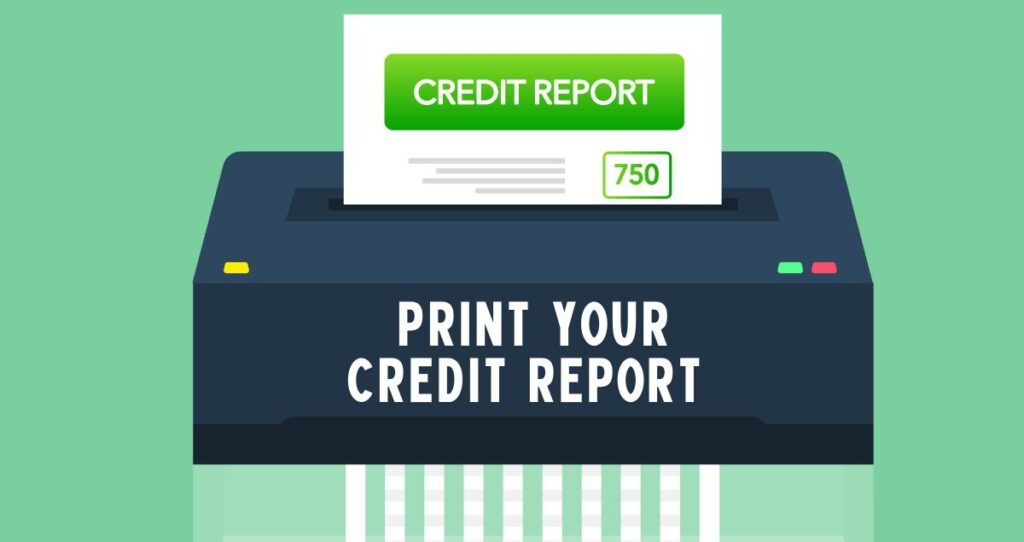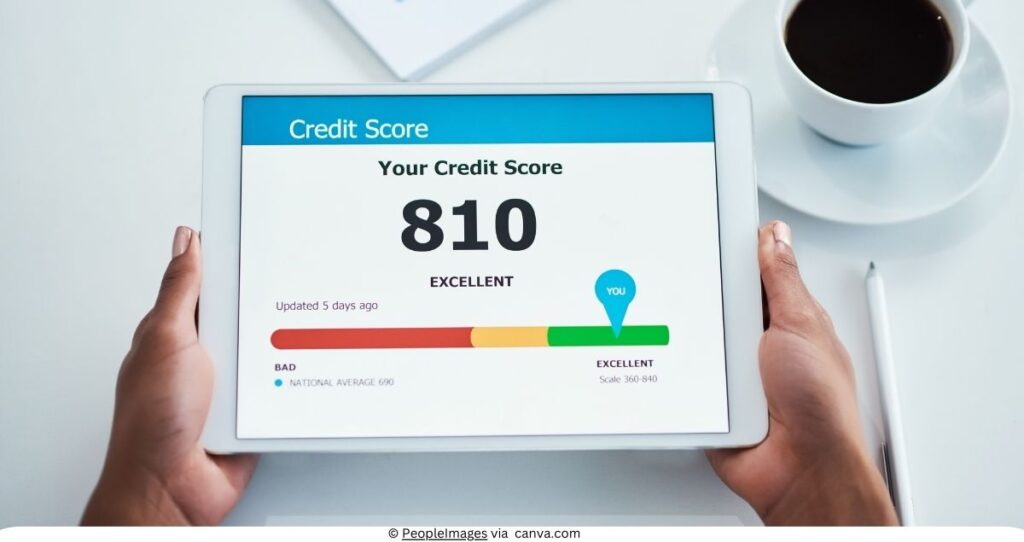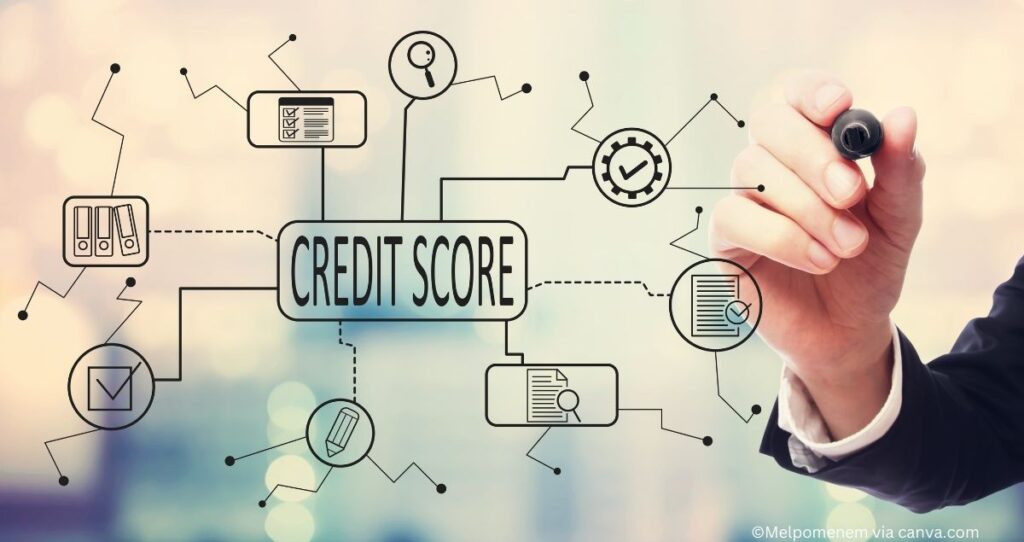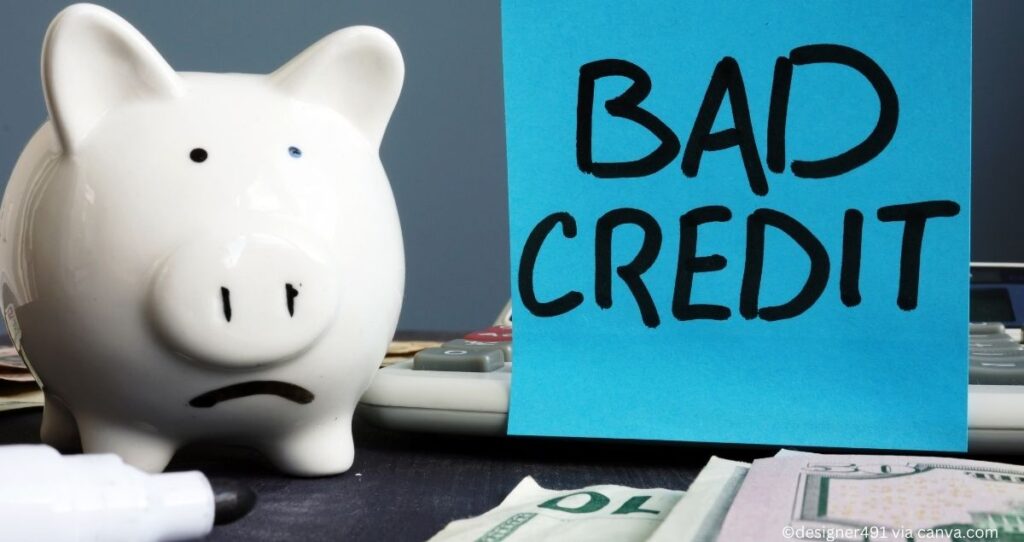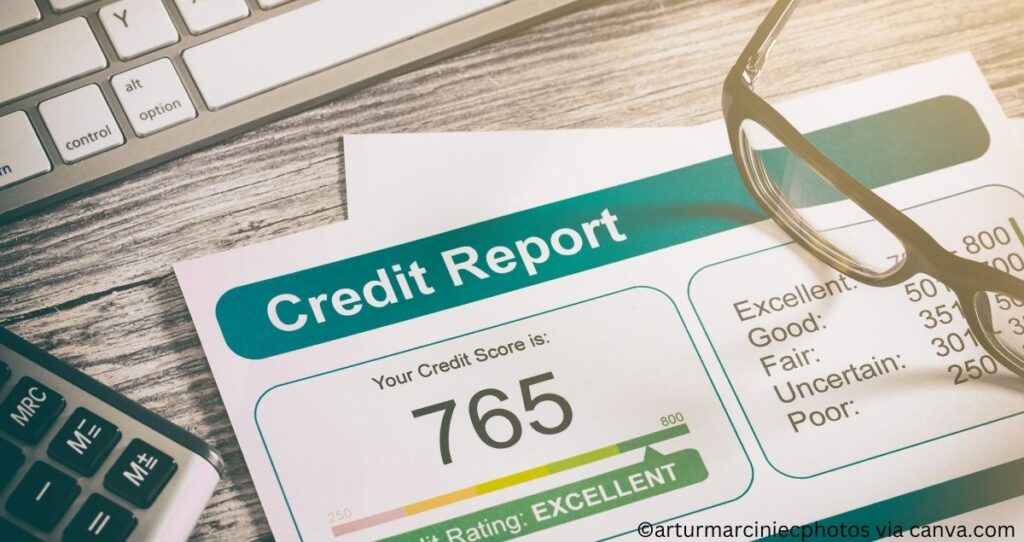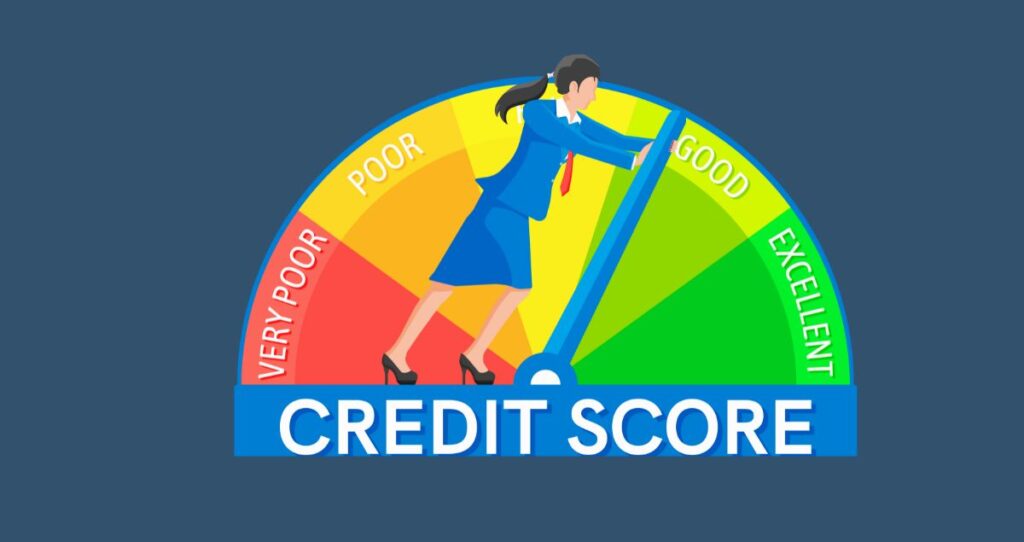The FICO score is a three-digit number that ranges between 300 to 850 and helps lenders determine your likelihood to repay the loans and credit card balances. The higher your FICO score is in this range, the easier it is to qualify for loans with lower interest rates and favorable terms. Your FICO score is calculated using information from your credit reports.
A good FICO score can save you thousands of dollars in interest charges as lenders approve you for lower rates on loans and credit cards. You can also get approved for loans faster if you have a good FICO score. Factors that affect your FICO score include your payment history, credit utilization, length of your credit, credit mix, and new account activities. You can easily boost your FICO score by paying your bills on time, maintaining a low credit utilization, and being mindful of how you use your credit accounts.
Over 90% of lenders use FICO scores when assessing consumers’ loan applications. Some credit card issuers such as Discover allow you to view your FICO score for free while other credit monitoring websites charge a few. To ensure your FICO score is calculated using current and accurate information, get a copy of your credit reports from annualcreditreports.com and dispute any errors and inaccuracies to major credit reporting agencies and lenders.
Here is everything you need to know about your FICO score.
What is an FICO score?
A FICO score is a numerical number ranging from 300 to 850 with 300 being the lowest score you can have while 850 being the highest score. An 850 FICO score is also known as a perfect score and, according to Experian, only 1.54% of American consumers have a perfect credit score. Having a good credit score helps you qualify for loans and credit cards at lower rates, better terms, and more money. The lowest possible FICO score for a consumer is 300.
The FICO score is calculated by the Fair Isaac and Compay using the FICO score model. To calculate your FICO score, the company uses information from your credit reports as reported by three major credit reporting agencies.
There are 3 major credit reporting agencies.
- Experian
- TransUnion
- Equifax.
FICO feeds information from your credit reports into an algorithm that computes your FICO score. Your FICO score changes based on what was reported in your credit reports. For example, your FICO score will decrease due to a late payment in your credit reports. The FICO score is usually affected by 5 major factors:
- The payment history
- Credit utilization
- Length of credit age
- Credit mix, and
- New credit account activities.
A few more factors to know about the FICO score.
- Over 90% of lenders use your FICO score for loans, mortgages, and credit card applications.
- There are many versions of the FICO scoring model such as FICO score 8, FICO score 9, and FICO score 10 suite which is also the newest.
- Your payment history and credit utilization rate are the biggest factors affecting your FICO score with 35% and 30% respectively. I will cover these factors in the next few paragraphs.
- A good FICO score helps you qualify for lower rates, more money, and favorable terms.
- Your credit score can be rebuilt no matter how messed up it is without paying anyone to do it for you.
- You need six months of credit activities before your first FICO score can be calculated.
- The lack of enough credit activities on your credit reports means you have a thin credit file. You can improve a thin credit file by opening your first account such as a credit card.
What are the ranges of FICO scores?
The FICO score model uses the 300 to 850 scale and is divided into different ranges based on consumers’ credit scores. Here are ranges of the FICO score and how they affect loan eligibility and interest rates.
- Poor credit: 300 to 579. Most lenders will deny you credit with such a low credit score. If you get qualified, you will pay the highest interest with unfavorable terms.
- Fair credit: 580 to 669. A FICO score in this range is still not good enough to qualify for loans and credit cards. Some lenders, however, will approve your loan application in exchange for a higher interest rate.
- Good credit: 670 to 739. Most loans and credit cards require a good credit score to qualify for loans at affordable rates and manageable terms.
- Very good credit score: 740 to 799. If you have this credit score, you will qualify for any loan and pay a much lower interest rate. You can also bargain the terms of the loan.
- Excellent credit: 800 to 850. People with 800+ credit scores qualify for any loan, get the higher loan amount, and have the best favorable terms. You have the upper hand with this FICO score.
What factors affect your FICO score?
Your FICO score increases and decreases based on information in your credit reports. Usually, your score is updated monthly although it could be updated more than once if you have multiple accounts. This is because if some of your lenders submit information to major credit reporting agencies on different dates, your credit reports could be updated accordingly. This in turn may result in recalculating your credit score.
The following is a list of all factors affecting your FICO score.
1. Payment history: 35% of your FICO score
The biggest factor affecting your FICO score is your payment history. How you pay your bills matters the most in credit score calculations. Why? Because lenders rely on your ability to pay back the loan with interest. Failing to do so, automatically make you a risky borrower.
For this reason, having late payments, delinquent accounts, collections, charge-offs, foreclosure, bankruptcies, and similar negative items on your credit report will drop your credit score. A single negative item such as a late payment can drop your score by 100 to 160 points depending on your score. The good news is that these negative items can be removed from your credit reports within 7 to 10 years.
Read more: How to avoid late payments on your credit report
How to improve your payment history?
Paying your bills on time consistently can help you improve your FICO score fast. Here are tips to avoid late payments on your credit report.
- Automate your payments
- Avoid carrying a lot of balance on your credit cards and similar revolving credit accounts.
- Set up a payment reminder at least one week before the due date
- Keep your credit utilization under 5%
- Stay on top of your debts
- Pay more than the minimum payments
- Do not make a payment on the last minutes
- Ensure you have enough money in your account if you have automatic payment
- Always double-check if your payments were successful
2. Credit utilization: 30% of your FICO score
The second biggest factor affecting your FICO score is the credit utilization on revolving credit such as credit cards, personal lines of credit, and home equity lines of credit(HELOCs).
What is credit utilization?
- The credit utilization represents how much you have spent on revolving accounts compared to your total credit limits. For example, your credit utilization will be 50% if you have spent $500 and your total credit limit is $1,000.
- A high credit utilization sends a negative signal to lenders as they think you are relying on debt to cover your lifestyle. Additionally, a high credit utilization rate may indicate poor financial management or other financial difficulties.
Most lenders suggest a credit utilization under 30%
- To maintain good credit, increase your credit score, and eventually get an 800+ credit score, keep your credit utilization under 5%.
- Credit reporting agencies and FICO calculate your credit score based on the most recent information in your credit reports
How to improve my credit utilization?
There are a few things you can do to improve your credit utilization. Here are the most effective and smart ways to improve your credit utilization.
- Increase your credit limit. You can get a higher credit limit by opening a new credit card or requesting a credit limit increase from your credit card issuers.
- Do not carry a balance on your credit cards
- Avoid paying the minimum payment as it will lead to a higher credit balance carried over and cost you higher interest charges
- Do not close a credit card account
- Pay your bills on time
- Avoid excessive spending with your credit cards, especially impulse shopping
- Do not buy a high-cost item with a credit card
Read more: What is the best credit utilization ratio?
3. Length of your credit history: 15% of your FICO score
The third factor affecting your FICO score is the length of your credit history. The longer you have been using credit, the higher the length of your credit history will be, resulting in a higher credit score. The following factors are considered in the FICO score model when calculating the length of your credit.
- How long ago since you open a credit account
- The average age of credit of all open accounts
- The age of your oldest credit account on your report
Lenders prefer borrowers with at least 5 to 10 years of length of credit history. Additionally, one must have a good age of credit history to have an excellent credit score.
To maintain a good length of credit history, get your first credit account as soon as possible. Also, keep your credit card accounts open even if you are not using the cards. Only close the account if it comes with an annual fee and you don’t need or use it.
Read more: What is a good age of credit history to qualify for loans
4. Credit mix: 10% of your FICO score
Credit mix represents different credit accounts on your credit reports. People usually get different loans based on their needs and financial situations. The type of loans you end up having on your report can help improve your credit score.
Having a good credit mix can boost your credit score.
What is a good credit mix?
A good credit mix consists of revolving credit accounts such as credit cards and installment loans such as car loans and mortgages. It is important to note that the credit mix only accounts for a small percentage of your FICO score. For this reason, taking out loans for the sake of a good credit mix is foolish. You should take out loans only when you need the money and it makes financial sense.
I usually recommend having at least two types of accounts on your credit report. One revolving account such as a credit card and an installment loan such as a cheap car loan. If you don’t want a loan, you can still build an outstanding credit history with credit cards. For example, I built my credit score to 825 using 3 credit cards and it only took me 5 years to break the 800 score barrier.
Read more: What is a good credit mix to increase credit score?
5. New credit account activities: 10% of your FICO score
Another factor affecting your FICO score is new account activities. New accounts refer to the credit accounts you applied for and how often you applied for loans and credit cards. Each time you apply for a new account such as a credit card, a hard inquiry appears on your credit reports.
Each hard inquiry lowers your credit score by 5-6 points on average although you could lose up to 12 points. Applying to too many loans or loans you do not qualify for, can significantly lower your credit score as you lose a few points every time the lender pulls your credit reports.
A good note: To minimize the effect of hard inquiries on your credit score, rebuild your credit score, and apply to credit cards and loans you qualify for. Also, try to have no more than one hard inquiry on your credit reports in any 12 consecutive months.
Another term you should remember is a soft inquiry which does not lower your credit score.
Here is how a hard inquiry differs from a soft inquiry
- Hard inquiry. Hard inquiries appear on your credit reports as a result of seeking credit. For example, if you apply for a loan, the lender will request to view your credit profile. This activity shows your financial situation has changed which could indicate an increased risk in lending you money. Hence, a hard inquiry.
- Soft inquiries. Soft inquiries on the other hand are credit profile reviews that do not affect your credit score. For example, if a lender wants to pre-qualify you for a credit card, they can check your credit file to determine your eligibility. Soft inquiries appear on your credit reports but are visible only to you and do not affect your credit score.
How to boost your FICO score?
If you have a bad credit score or want to break the 800 score barrier, the following are tips to boost your FICO score fast.
- Pay your bills on time. Payment history is the most important factor in your FICO score as it accounts for 35% of its calculations. For this reason, paying your bills on time will help improve your score over time.
- Keep your credit utilization under 5%. To get to an 800 credit score fast, it is essential to maintain a lower credit utilization.
- Pay down your debt. Keeping a relatively low amount of debt helps improve your DTI ratio. If you have multiple credit cards with higher balances, consider a balance transfer to lower interest on your balance. Other debt management strategies such as the debt avalanche or debt snowball methods can also help you pay down your debts.
- Dispute errors in your credit reports. Errors in your reports can weigh down your credit score for a while. That is why you should maintain a clean credit report with the most accurate and updated information. Any errors and inaccuracies can all be disputed to major credit bureaus and lenders.
- Check your credit reports regularly. By regularly checking your credit reports, you can spot and dispute issues early enough before they affect your score.
- Become an authorized user of a credit card account. If you want to boost your score fast, get added to an excellent credit card account as an unauthorized user.
- Get a credit builder loan. If you have bad credit, getting a credit builder loan can help you repair your credit fast.
- Get a secured credit card. If you have a bad FICO score, a secured credit card can help you improve it fast.
Read more: How to get an 800 credit score the easy way?
What is a credit report?
A credit report is a detailed document that shows all your credit accounts and associated credit activities. The report shows the different types of accounts you have, when you opened them, your payment activities, credit utilization, negative items (if any), your personal information, etc.
The credit report also shows your lenders, how much you owe, etc.
Credit credit reporting agencies(Experian, TransUnion, and Equifax) compile your credit reports using information they collect from your lenders. That is, your lenders submit your account activities to major credit bureaus who then make your credit reports. Once your credit reports are established, major credit reporting agencies and FICO use information from your credit reports to calculate your credit scores using different credit scoring models.
FICO uses the FICO score model to calculate your FICO score.
Credit reporting agencies, on the other hand, calculate your VantageScore using the VantageScore model. While the information used by both models is the same, your FICO score and VantageScore are not the same. Each model applies different weights to information in your credit reports resulting in different credit scores.
How to get a free copy of my credit report?
Did you know that you are entitled to a free copy of your credit report? That is right. If someone wants you to pay for a copy of your credit report, hold on a second. Each credit reporting agency (Equifax, TransUnion, and Experian) is required to give you a free copy of your annual credit report once every 12 months. That is right.
Here is how to get a free copy of your credit report.
- Go to: Annualcreditreport.com. This is a government-approved website for getting credit reports. So, you don’t have to worry about scams.
- Click on Request your free credit reports.
- Follow the 3 steps process including completing a form, selecting the report you want(meaning from which reporting agency), and requesting the report.
Read more: How to get a free annual credit report?
How do I view my credit score for free?
You can easily check your VantageScore for free from one of the credit monitoring websites like Creditkarma. Some people think this score is not accurate. The truth is that the VantageScore you get from CreditKarma is a great estimation of your credit score.
This is because CreditKarma pulls your credit score information directly from TransUnion and Equifax and displays it as is. CreidtKarma does not calculate your credit score. Instead, it pulls your VantageScore info from these two credit reporting agencies.
Other places to check your FICO score, besides CreditKarma.
- Chase Credit Journey to get your TransUnion score
- Credit.com to view your Experian score
- MINT to view your Equifax score
Another great way to check your credit score is to take advantage of the benefits that come with having a credit card. Most credit card issuers give free credit score information to their customers. For example, Discover lets you see your FICO score information inside your account online free of charge. Other companies such as Bank of America, CaptialOne, etc. also give you access to your credit scores if you have one of their credit cards.
Why are my credit scores different?
Every agency uses its proprietary scoring model leading to having different credit scores. However, having different credit scores does not mean one is more accurate. They all reflect information in your credit reports.
Some lenders also don’t report to all credit reporting agencies, resulting in different information in your credit reports, and different credit scores. If one bureau did not receive a late payment report from one of your lenders, for example, the score from that credit bureau will be better than those that received the information.
